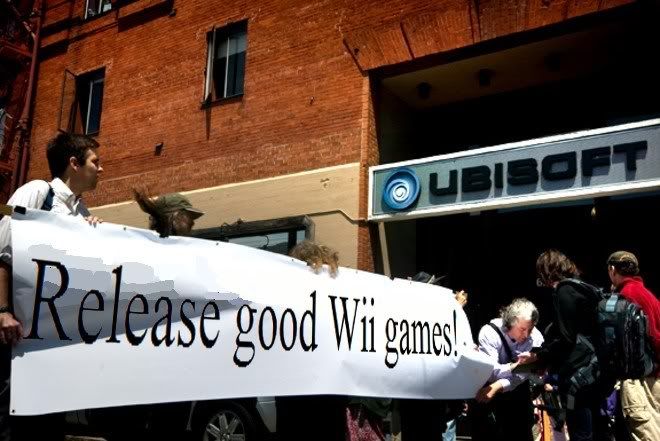| Picko said: Nintendo hasn't had great third party support for well over 10 years now. The Wii situation is little different to the Gamecube and N64 experience. Secrecy didn't hurt Nintendo, being arseholes in the late 80s / early 90s did. |
Nope, There is more to the problem than that. If third parties hated Nintendo's attitude, they could have left and developed for the Sega consoles, which died because of the lack of third party support. What happened is Sony went after Nintendo's third party support like Microsoft is going after the third party support of the PS3. Add Sony's aggressiveness in seeking third party support with the cheap cost of CDs and that's the recipe that killed Nintendo, cartridges were just too expensive and developers made less money back from cartridges sales than for CD sales.
Also people forget that Nintendo was dominating the portable market at this time. Third parties had not trouble supporting the Gameboy in all of it's iterations. There were other portable on the market also. The Wonder Swan was a very good competitor and the Wonder Swan Color caused the life cycle of the gameboy color to end prematurely, it lasted on the market for about two maybe three years. Nintendo had to launch the GBA earlier than planned and third parties were there. When Bandi launched their competitor, the Crystal Swan, it was too late. Third parties did not support it.
Most people think that relationships with the developers is what constitue third party support. No. The video game industry is a business. EA , Square-Enix, and Valve are all companies and they follow the money. Sony has not done any thing to piss off their third party support but that has not stopped them from losing exclusives. Square and Nintendo were close companies untill Square decided to support Sony. Sony and Square became close companies but their closeness did not stop Square from making Final Fantasy XIII a multiplatform release in the West.
Note: The PS2 came out a year earlier than the Gamecube and support DVD 5, which is 4.7 to 4.8 Gigabytes. The Gamecube used mini dvds that could only store 1.5 Gigabytes of data. Storage space cost them third party support again. Developers did not want to make multi-disk games.
Anyway, I could say more but I'm tired.



If Nintendo is successful at the moment, it’s because they are good, and I cannot blame them for that. What we should do is try to be just as good.----Laurent Benadiba
















































